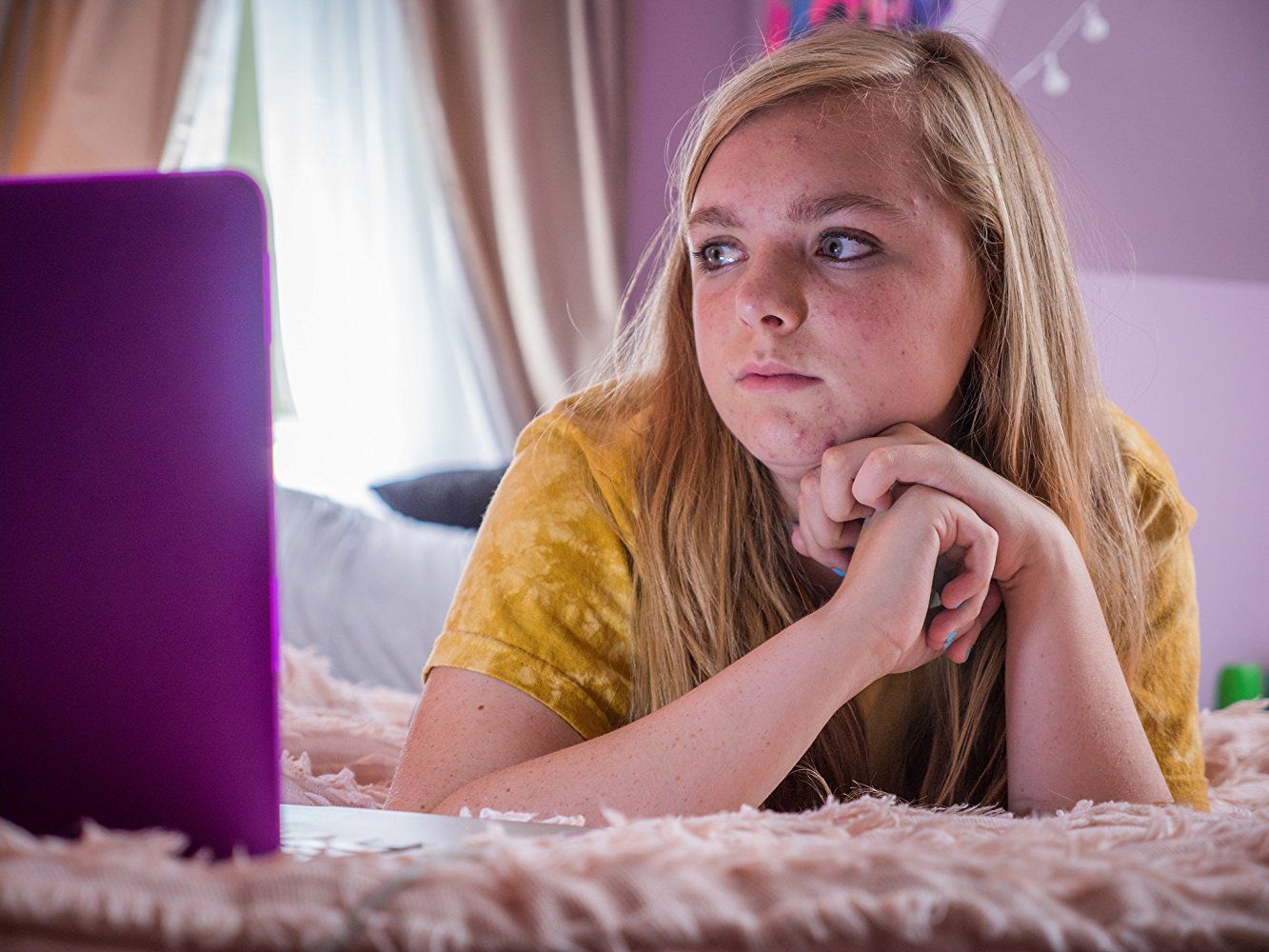Eighth Grade is perfectly positioned in the awkward space between Big Star's "Thirteen" and Taylor Swift's "Fifteen" as an agonizingly unformed cringe. It is, in other words, a fluttering and uncomfortable portrait of a fourteen-year-old's insecurities. Every scene is a negotiation between her past self and her potential futures, with stumbling mumbling, exuberant yet hesitant speech, and a slouched defensive posture. The film is therefore often excruciating, but usually sweet -- a bit much, with a pounding cutesy score cuing too obviously the character's mindset (loud blasts when she catches the eye of a cute boy, sudden silence when in an uncomfortable spot). But then again, isn't that just the way that age goes? Big emotional cues accompany every small moment of potential drama. Writer-director Bo Burnham (a former YouTuber improbably making a fine feature debut) sensitively observes this slice of gangly, fumbling life, poised teetering in the fuzzy, ill-defined space between middle school and high school. Taking place over the last week of her school year, the film follows Kayla (Elsie Fisher) as she simply gets by. She is, like so many of us were, caught between her need for approval and her desire for independence, her shy hope to avoid being noticed and her stubborn hope to be accepted. She approaches every social interaction in survival mode, seeking to be cool and approachable while guarding against looking as awkward as she feels. Each scene, then, is a sense of both preservation and a wish to answer an unspoken question -- how to make the popular kids like her; how to get the cute boy to see her as someone to know; how to not look foolish in front of her peers; how to be comfortable in her own skin. The movie is loaded with symbols -- a time capsule, a cracked phone, a sliding door -- but manages to wear them lightly as natural extensions of her ordinary, relatable existence. She's moving ahead, breaking and burning some of the old, trying to move out into the next phase of life while not sure if she has what it takes.
There's little ill-considered here, though its rarity of subject and sincerity had me practically holding my breath waiting for it. Burnham's flat, empathetic, low-key style rarely insists on amping up the drama or the stakes. Here's a movie that looks at a thoroughly normal girl living a life full of quotidian ups and downs. He sticks closely to her perspective. There's no big lesson, no huge change, no sudden crisis, and not even a big dance or calamitous coming-of-age dilemma toward which to build. It simply says she's an average, ordinary eighth grader, worried about her body, lonely without close friends, consumed in social media feeds that feed her insecurities, and lost in confusion and anxiety about growing older. And that's enough reason to care. Fundamentally a kind movie, it treats its characters with respect and interest, worrying about their well-being while unable to look away as they dive head first into awkward situations. It helps that its lead is giving a performance of remarkably unselfconscious specificity. Fisher (heretofore best known as the voice of the youngest daughter in Despicable Mes) embodies the ordinariness of her character's life -- she makes little YouTube advice videos that get somewhere between zero and three views each; she alternately loves and is annoyed by her dad (Josh Hamilton, radiating kindness); she shyly puts herself in social situations that lead to a minefield of potential embarrassments (or, as in one harrowing scene with a high schooler, worse) and fumbles her away out the other side a little wiser. Maybe. She presents these complications with a realistic tone, flitting across the light script with a quick eye and well-tuned ear, jumbling and mumbling when excited and glowering when unsure. Burnham gives her the space to make the part feel genuine, and the patience to allow her character the ability to simply be.


No comments:
Post a Comment